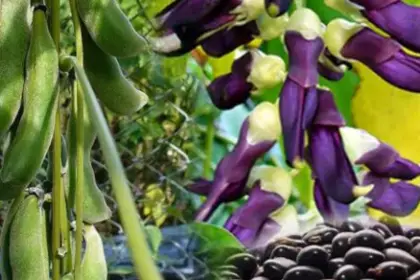In the realm of medical advancements, blood thinning drugs have undoubtedly played a crucial role in preventing a blood clot from happening, which can cause life-threatening conditions such as stroke and heart attacks.
However, the path to maintaining a healthy circulatory system might not be solely paved with pharmaceuticals. As research continues to shed light on the potential side effects of blood thinning medications, a growing number of individuals are seeking safer alternatives to reduce their risk of blood clots.
In recent years, the spotlight has shifted towards the role of diet in promoting natural anticoagulation – a process that discourages the formation of blood clots without resorting to chemical interventions.
With the awareness that a balanced diet can significantly impact cardiovascular health, medical professionals and individuals alike are turning their attention to a range of foods known for their natural blood-thinning properties.
This article delves into the intriguing realm of natural anti-clotting foods, presenting a compelling case for embracing these alternatives. By exploring the benefits of these seven essential foods, we embark on a journey towards empowered health choices and a deeper understanding of our body’s intricate balance.
So, let’s uncover the palate-pleasing path to preventing blood clots and promoting overall well-being.
What Causes a Blood Clot?
A blood clot, medically known as a thrombus, is a gel-like mass formed when blood components, such as platelets and fibrin, combine and solidify within a blood vessel.
While blood clotting is a crucial part of the body’s defense mechanism to prevent excessive bleeding from injuries, problems arise when clots form unnecessarily or inappropriately in blood vessels.
The process of blood clot formation, also known as coagulation, involves a delicate balance between procoagulant factors that promote clotting and anticoagulant factors that prevent it.
When this balance is disrupted, clots can form within blood vessels, obstructing the flow of blood and potentially leading to serious health issues, such as heart attacks, strokes, or pulmonary embolisms.
Who is at Risk for Blood Clots?
Several factors can increase the risk of developing blood clots. These risk factors can be broadly categorized into three main groups:
- Medical Conditions: Certain medical conditions can contribute to the formation of blood clots. These include:
- Atherosclerosis: A condition where arteries become narrowed and hardened due to the buildup of plaque, increasing the risk of clots.
- Atrial Fibrillation: An irregular heart rhythm that can cause blood to pool in the heart, leading to clot formation.
- Deep Vein Thrombosis (DVT): Clots that form in the deep veins of the legs or pelvis, often associated with extended periods of immobility.
- Cancer: Some cancers and cancer treatments can increase the risk of clot formation.
- Inflammatory Disorders: Conditions like rheumatoid arthritis or lupus can lead to inflammation that contributes to clot formation.
- Lifestyle Factors: Certain lifestyle choices can also influence clot formation:
- Sedentary Lifestyle: Lack of regular physical activity can impair blood circulation and increase clot risk.
- Smoking: Smoking damages blood vessels and promotes clot formation.
- Obesity: Excess weight can contribute to inflammation and affect blood flow, raising clot risk.
- Genetic Factors: Some individuals are genetically predisposed to clotting disorders due to inherited mutations in genes responsible for regulating coagulation. Conditions like Factor V Leiden mutation or antithrombin deficiency fall into this category.
- Surgery and Trauma: Surgical procedures, especially those involving joints or the abdomen, can increase clot risk due to immobilization and tissue damage.
- Hormonal Factors: Certain hormonal treatments (like hormone replacement therapy or birth control pills) can increase clot risk, particularly in individuals with other risk factors.
- Age and Gender: Clot risk generally increases with age, and women may be more prone to clots during pregnancy and the postpartum period due to hormonal changes.
Understanding these risk factors is crucial for both medical professionals and individuals to take preventive measures and make informed decisions regarding their health and lifestyle.
7 Foods That Fight Against Blood Clots
In the intricate ballet of our bodily functions, blood clotting is a choreographed response designed to shield us from excessive bleeding.
However, this very mechanism, if disrupted, can amplify the risk of heart attacks or strokes—a blood clot can form and obstruct the vital supply of oxygenated blood to the heart, muscles, or brain.
This predicament has led medical practitioners to often prescribe blood-thinning drugs, aiming to mitigate such dire outcomes.
Nonetheless, the assistance these drugs provide in preventing blood clot formation isn’t without its share of drawbacks. The roster of potential side effects includes headaches, dizziness, abdominal discomfort, and even jaundice.
Additionally, the unnerving prospect of excessive bleeding following an injury looms—a scenario just as perilous as the heart attacks and strokes these drugs seek to avert.
The substantial array of undesirable effects associated with blood thinning medications has spurred a surge in the quest for holistic, all-natural methods to ward off blood clots.
Below, we delve into some well-established strategies proven to promote blood thinning, reducing the likelihood of these menacing clots taking form.
Garlic
Beyond its culinary charm lies garlic’s remarkable ability to act as a potent blood thinner. If the taste and aroma of garlic aren’t your cup of tea, fret not—a convenient alternative is available in the form of garlic supplements. These capsules offer an equally effective route to reaping the benefits of this common herb, sparing you the task of consuming multiple garlic cloves throughout the day. Can’t Do Garlic? Check Out These Odorless Capsules By Micro Ingredients!
Turmeric
The vibrant hue that adorns curry dishes owes its origin to turmeric, a powerful ally in the battle against heart attacks and strokes. Scientists reveal that turmeric possesses the remarkable capability to prevent platelets—integral components in clot formation—from aggregating and forming life-threatening clots. Check Out Micro Ingredients Organic Turmeric Powder To Add To Soups, Smoothies, Or Ingest Straight! Click Here To Learn More!
Ginger
Sitting kin to turmeric, ginger emerges as another formidable contender in the realm of blood clot prevention. While renowned as a go-to remedy for indigestion and acid reflux, ginger also stands out as a superb natural blood thinner. Integrating ginger into your diet can be as straightforward as enjoying it in tea form—a simple and soothing means of embracing its benefits. Add This Nutritious Ginger Powder To All Your Drinks And Smoothies! Click Here To Check Out Micro Ingredients Organic Ginger Powder!
Pineapple
The tropical allure of pineapples conceals a valuable secret ingredient: bromelain. This enzyme is responsible for bestowing pineapples with the power to lower the risk of heart attacks and strokes. Celebrated for its potent antioxidant properties, bromelain hinders platelet aggregation, thwarting the formation of perilous blood clots. Always Have The Most Nutritious Pineapple At Home, Check Out This Organic Pineapple Powder From Micro Ingredients!
Oily Fish
For those yearning to maintain fluid blood consistency, a culinary adjustment might be in order. Prioritize the consumption of the oiliest fish varieties available, as they are rich repositories of omega-3 fatty acids—nourishing fats proven to uphold blood fluidity. By countering the thickening of blood, these healthy fats undermine the conditions conducive to blood clot formation. Not A Fan Of Fish? Check Out Micro Ingredients High Quality Fish Oil Supplement Here.
Avocados
Following in the footsteps of oily fish, avocados extend an invitation to embrace omega-3 fatty acids. This dietary contribution translates to blood-thinning benefits, supported by scientific findings. Additionally, avocados harbor salicylate, a natural compound existing in select plants, renowned for its clot-preventing properties.
Hydration’s Role: Water
It’s intriguing to contemplate that something as simple as water plays a pivotal role in blood thickness. Dehydration can lead to the thickening of blood, escalating the susceptibility to blood clot formation.
Thus, maintaining adequate hydration—a daily intake of approximately 2 liters or 8 cups—serves as a foundational strategy for preserving blood thinness, ultimately reducing the risk of heart attacks and strokes.
As we delve into the realm of natural blood thinners, it’s imperative to recognize the symbiotic relationship between our dietary choices and overall well-being.
These remarkable alternatives not only offer protection against the perils of blood clots but also empower us to take charge of our health journey. Just remember, knowledge, and consultation with healthcare professionals are the guiding lights on this path towards holistic wellness.
As with any endeavor involving home remedies for various health concerns, it is paramount to consult your medical professional regarding your intention to combat blood clots naturally.
This holds especially true if you are already on a regimen of blood thinning drugs, as the combination could intensify the effects of the drugs, potentially leading to excessive thinning of the blood.





